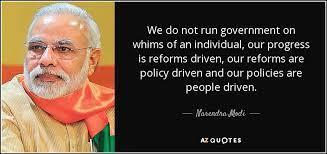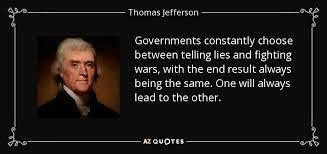Legislature
Kenya's Majority leader withdraws controversial Livestock Bill
- By solomon2day
- On 11/06/2021
- Comments (0)
- In News
 The controversial livestock Bill 2021 has been withdrawn by the Kenyan National Assembly Majority Leader Amos Kimunya on the promptings of the Executive.
The controversial livestock Bill 2021 has been withdrawn by the Kenyan National Assembly Majority Leader Amos Kimunya on the promptings of the Executive.
This disclosure was made on Friday in a statement by Kimunya.
"The bill has temporarily been suspended until we have more consultations within the government because the issues we are raising are some of the issues people have raised from elsewhere," Kimunya stated,'' he disclosed.
The bill was to be introduced for its first reading on Tuesday but was removed from the day\s agenda after the Assembly Speaker, Justin Muturi stated that further consultations were imperative.
A law in the livestock bill had proposed that any person who intends to keep bees required to obtain a license.
Further, the bill stated that no person would be allowed to keep bees for commercial purposes except in an apiary registered under the new Act.
"A person shall not own or possess bees or beekeeping equipment for commercial purposes unless the person is registered under the Act or allow bees to be kept on land owned or occupied by the person unless the land is registered under the act as the location of an apiary," reads the bill.
The Way Lawmakers were Elected Has Negatively Affected Lawmaking in Nigeria-Prof. Olagoke
- By solomon2day
- On 30/07/2020
- Comments (0)
- In The People Talk
 Nigerians have are of the consensus that the legislature at both the Federal and State levels have done very little to address the country's challenges that revolve on peace, order, and good governance. In this interview the Founder, Spiritual Head and Grand Imam of Shafaudeen-in-Islam worldwide, Prof. Sabitu Olagoke opines that it would be difficult for the present crop of lawmakers at the Federal and State levels to make laws that would ensure, peace, order, and good governance due to the circumstances surrounding their elections into the legislature. Excerpts :
Nigerians have are of the consensus that the legislature at both the Federal and State levels have done very little to address the country's challenges that revolve on peace, order, and good governance. In this interview the Founder, Spiritual Head and Grand Imam of Shafaudeen-in-Islam worldwide, Prof. Sabitu Olagoke opines that it would be difficult for the present crop of lawmakers at the Federal and State levels to make laws that would ensure, peace, order, and good governance due to the circumstances surrounding their elections into the legislature. Excerpts :
In what areas do you think members of the Legislative arm of government in Nigeria can make laws to ensure peace, order, and good governance?
The shift from premiership or the parliamentary system of government to the present colossal waste form of the presidential system has been found to be an eternal error for Nigeria.
During the parliamentary system, the regional government was favored, making each region to develop at their own pace, based on the wealth of resources on the ground.
For the west, the areas of commerce, communication, transportation, mining, agriculture among others led to the birth of radio and television, which was the first in Africa. This equally beamed their searchlight on other areas of development to the benefit of the welfare of the people including their environment.
The presidential system on the other hand only succeeded in impoverishing the people and retarding development leading to a series of challenges and problems. The replication of the achievement in the west enriched the North at the expense of other areas to the threat level of the unity of the nation, under the cover of federal character that favored only the acclaimed states or regions.
During the parliamentary system, wisdom and experience were crucial factors that determined those who were elected, unlike in the present circumstance wherein only the money bags have their way.
Assistance for the rich only goes to the elite class who earn their pay for the services rendered to the politicians in power.
Educational and professional institutions are made to languish under the whims and caprices of the moneybag politicians who dictate the tune.
The religious sector under the presidential system is managed through divide and rule tactics to segregate the religious leaders, wherein most of them are been used as megaphone propagandists to deceptively make it look as if God is supporting the oppressive and wasteful rulership approach of the politicians in power.
To the saints, who are very few in number, the whole scenario implies impunity in the houses of God, contrary to the sacredness essence of the houses of worship.
Spiritism drives the engine of political vehicles affecting our system of integrity, objectivity in policymaking, and implementation! Since the presidential system in vogue, anti-societal clauses and phrases have continuously emerged in the form of budget padding, making the implementation to be fraught with fraud. Institutional indiscipline simultaneously cropped up with various allegations and accusations against political office seekers. This has manifested in the various cases of perjury and forgery of certificates just to be able to get the juicy positions of power, not for service but to make money.
There are also several cases of members of the National Assembly involvement in corruption scandals through contract awards and constituency projects scams that are being reported by the media. Is it not an irony of life that most projects meant to emancipate the masses are always hijacked by the political class that is inside or outside government, most especially the members of the National and State Huse of Assembly as bait to parley with the Executive on issues of jeopardized public interest. Examples are the 774,000 jobs that are expected to be executed through the Local Governments and the National Directorate of Employment(NDE). It is a source of concern that the National Assembly shall have a share of these jobs, including the fact that a former Lagos state governor, his daughter, and a caretaker chairman of the NURTW are to manage the Lgoas state share of the jobs. Secondly, the Niger Delta Development Commission(NDDC)corruption probe equally indicts several legislators who are expected to concentrate on their constituency projects and their oversight functions. Unfortunately, most of the projects as contracts from the NDDC and as oversight functions are seen to overlap in the presentation! With all these antecedents of bad records for many of the legislators, one cannot but become skeptical about the possibility of having lawmakers that would be patriotic enough to sacrifice his or her time, body and wealth to the level of thinking for Nigeria and the people through whose mandate they are able to get to the positions of power.
Thoughts of domesticating some international human rights issues, most especially in the areas of women's human rights, always send jitters down one's spine, whenever one remembers how it was first rejected, then ridiculed. The bill to be passed had issues due to the issue of bribery which was not forthcoming. One can easily infer therefore that making laws to ensure peace, order and good governance would continue to prove difficult, considering the way and manner the lawmakers got elected through several group interests, political parties will always seek to have the majority in the House not to be able to serve the masses who gave them the mandate, but to be able to satisfy possible evil romance with the Executive that must have had some clandestine meeting of the oath of allegiance for the parties to remain in power and to be able to resist a possible outcry from the public or opposition parties for the removal of their colleagues. A downward review of the salaries and allowances of the legislators is long overdue. The nation, therefore, needs to develop a feedback mechanism that would be measurable to assess and evaluate the impact been made by the policies formulated and implemented. The people's voice on the actions and inactions of political office holders must be used the pulse of the nation on the quality of the laws made and passed by the lawmakers using the parameters of peace, good governance, and sustainable development to justify people's voting participation and the salary been earned by the political officeholders. A paradigm shift from the business as usual approach to that of sacrifice and service in office is not only desired from the executive but from the lawmakers as well.










